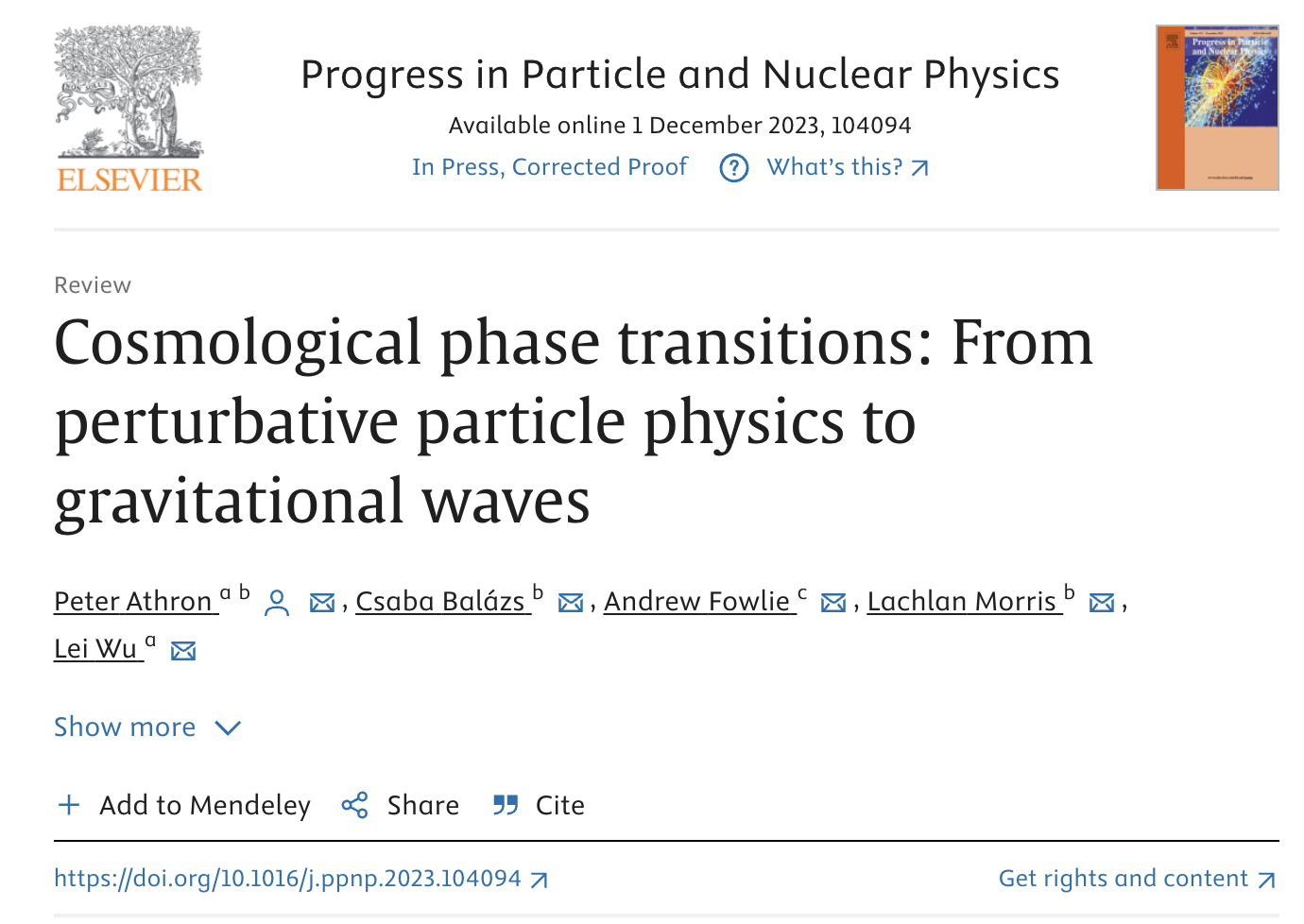05 Jan 2024
Dr Andrew Fowlie from the Department of Physics, the School of Mathematics and Physics, recently published in the top-ranking journal in nuclear and high-energy physics (Progress in Particle and Nuclear Physics; ranked first in 2022 by SJR). Working with researchers from Nanjing Normal University and Monash University, Dr Fowlie reviewed what we know about first-order cosmological phase transitions and gravitational waves. The 155-page report has already been cited almost 50 times by peers and could become a classic reference.

First-order phase transitions occur in everyday life whenever we boil or freeze water. They are dramatic changes in state, such as from liquid to gas, as we cool or heat matter. Remarkably, the Universe itself could undergo such a transition. In the strange world of quantum mechanics, empty space is never truly empty. It is seething with virtual particles that pop in and out of existence. This quasi-empty state is known as the vacuum. It may be possible for the vacuum to decay in a first-order phase transition.
Indeed, the Universe itself could 'boil' as it decays to a new vacuum. Just like boiling water, the transition could proceed through bubbles of new vacuum that form, grow, collide, and take over the Universe. This would be a violent process that released tremendous energy. A fraction of that energy could be radiated as gravitational waves that remain observable today. Gravitational waves are ripples in the fabric of space-time that were predicted by Einstein in 1916. They originate from huge disturbances in space-time, such as when immense astronomical objects, for example, black holes and neutron stars, collide.
In 2015, the Laser Interferometry Gravitational-Wave Observatory (LIGO) detected gravitational waves for the first time, leading to the 2016 Nobel Prize in Physics. These gravitational waves are thought to originate from black hole mergers. Dr Fowlie and colleagues reviewed whether similar experiments could detect gravitational waves from phase transitions in our early Universe. In doing so, they reviewed the theory of particle physics models, vacuum decay, bubble nucleation and growth and simulations of gravitational waves.
“With new ground- and space-based gravitational wave experiments planned over the coming decades, this is an exciting era and a timely review. The detection of gravitational waves from a first-order phase transition would indicate that our Universe 'boiled' in the past and revolutionise our understanding of the Universe.” says Dr Fowlie.
The paper “Cosmological phase transitions: From perturbative particle physics to gravitational waves” can be accessed online here.

Dr Andrew Fowlie joined XJTLU in 2023. He studies particle physics, particularly theories beyond the Standard Model, including dark matter and solutions to the hierarchy problem. His work often involves developing or applying new statistical methods to test theories against data. Dr Fowlie is also interested in the hierarchy problem which is one problem in high-energy physics and theoretical physics and dark matter.
Edited by Qinru Liu
05 Jan 2024








